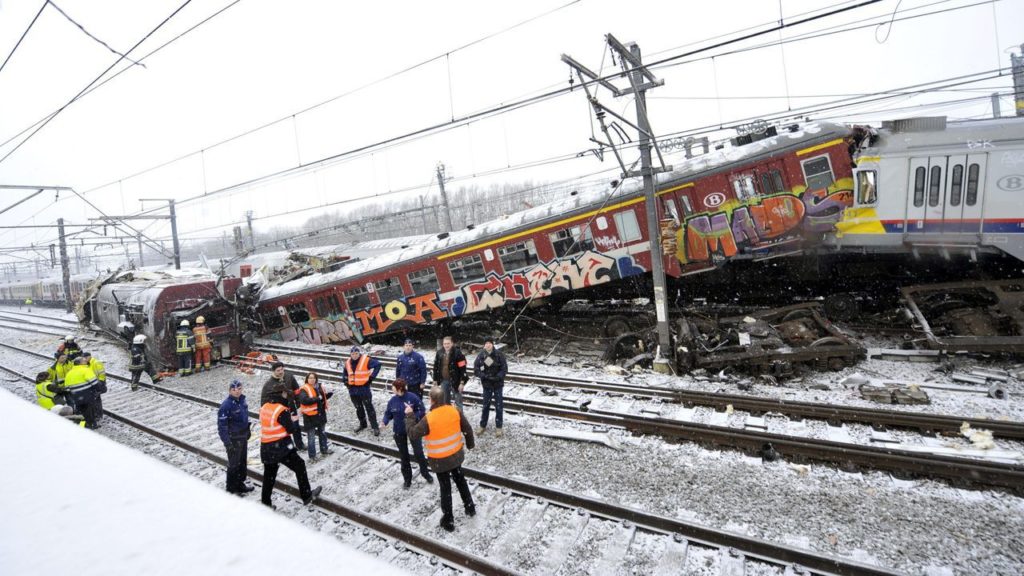The rail infrastructure company Infrabel has announced it will appeal the ruling of a court in the case of the fatal train crash at Buizingen in Flemish Brabant in February 2010, in which 19 people died and 310 were injured. The company issued an announcement in which it described the decision to appeal as “tough and difficult”.
The accident happened when a stop train riding from Leuven to Halle ran into an intercity train travelling in the opposite direction on the same track from Quiévrain to Liege, close to Buizingen station. Rescue services arrived at the scene rapidly, but they had to work in severe wreckage as well as cold and snow on the tracks.
Nearly ten years after the crash, on 3 December this year, a court ruled that the fault in the accident was firstly that of the driver of the Leuven train, which passed through a red light. But the major fault lay, the court said, with the rail authority SNCB and with Infrabel, because of technical failures that contributed to the accident. Both were ordered to pay a fine of €550,000, half of that sum suspended in the case of Infrabel.
At the time of that judgement, families of the dead and injured told De Standaard they expected the two companies to accept their responsibility and not to appeal the judgement. “That would be a new slap in the face for the grieving families, the survivors and their loved ones,” one relative told the paper. “It would show a lack of respect for everyone who has in one way or another been affected by this disaster.”
In a statement issued by Infrabel today, however, the company makes it clear it is less concerned about the judgement itself than about the judge’s statement which motivates the judgement.
“Unfortunately the content of the ruling would have severe consequences for the normal exercise of our duties, if we were to apply its terms,” the statement says. “To implement the ruling would lead among other things to the scrapping of a large number of trains. For that reason we find ourselves, on the advice of our lawyers and after a thorough analysis of the situation, obliged to lodge an appeal against this ruling.”
Concretely, Infrabel claims, to follow the ruling to the letter would be to put in jeopardy the proper functioning of the rail network. To take one concrete example, the ruling calls for a maximum of trains passing through the notorious North-South connection in Brussels to be held to 400 a day, counting in both directions. In reality, at the moment, the traffic amounts to 1,200 trains a day in that one connection between the North station and Midi station, passing through the Central station.
In another section of the ruling, the court calls on Infrabel, in cases where trains are due to cross, to place all points concerned in an alert position, ready to respond rapidly in case of human error. The company responds:
“If we should adhere to the ruling, it would mean that we had to put 80% of the points in our network in protective position. For that to be applied everywhere, the rail network would have to be completely redesigned and train traffic thoroughly reorganised, with all the consequences that would imply for rail customers and for mobility in Belgium.”
The company’s statement anticipates a negative reaction from the civil parties in the case. “We certainly do not wish to evade our responsibility with this decision, and it certainly is not a sign of any lack of respect for the victims. And this procedure will have no effect whatsoever on the damages due to the victims.”
The legal procedure to determine what damages are due to victims and their relatives, and who should pay, is due to start in June next year.
Alan Hope
The Brussels Times

